A much needed makeover: reshaping the leadership pyramid of women in academic global health
- May 8, 2017
- 4 min read

The topic and discussion of empowering women as leaders in global health academia often stops at acknowledgments and reflections on women’s leadership. The Consortium of Universities for Global Health (CUGH) is taking action to change that through the formation of the Women’s Leadership in Academic Global Health working group. CUGH strives to support universities as a transformative force in global health.
A multitude of events took place at the annual conference that focused on gender equality including a lively and highly participatory panel titled “The Ripple Effect: Promoting Female Leadership in Academic Global Health” and a Meet & Greet event with the organizers of the Women Leaders in Global Health Conference at Stanford University, the Women in Global Health Research Initiative from Cornell, and Women in Global Health. The upcoming Women Leaders in Global Health Conference at Stanford University was also promoted through a table where CUGH conference attendees could learn more about the event.
This important step to create a working group was ignited by the Gender Parity in Global Health Events: A Conversation online chat, where all panelists made a commitment toward achieving gender equality. The discussion was hosted by Women in Global Health, Global Health Council and Stanford University’s Centre for Innovation in Global Health. It was moderated by the Director of Stanford University’s Centre for Innovation in Global Health, Dr. Michele Barry and panelists: the Executive Director of the Consortium of Universities for Global Health (CUGH), Dr. Keith Martin; Executive Director of the American Society of Tropical Medicine & Hygiene (ASTMH), Dr. Karen Goraleski; and Dr. Padmini Murthy from the American Public Health Association (APHA).
CUGH, as a result of Dr. Martin’s commitment, has created a working group on Advancing Women’s Leadership in Academic Global Health. Given CUGH’s unique position of being a hub for academic global health and its ongoing commitment to translating knowledge into action, a clearly aligned agenda on gender equality has been conveyed to the consortium. Chairing the working group will be Dr. Roopa Dhatt, Co-founder and Director of Women in Global Health, a virtual movement striving for gender equality in global health leadership. The transformative aspirations of Women in Global Health combined with CUGH’s vision to support universities as catalysts for change in global health will bring together members of CUGH together to advance Gender Equality.

During the 8th Annual CUGH Global Health Conference “Healthy People, Healthy Ecosystems,” the working group had the chance to host a Meet & Greet and were joined by approximately twenty-five attendees of the CUGH conference, including deans, directors, executive directors, trainees, and CUGH board members. The meeting resonated with energy- attendees shared personal reflections of leadership and experience and discussed existing commitments and work. The group, representing only a fraction of all those interested in the issue, were keen to do more and to see this conversation for change develop into something greater within CUGH.
Below are a few reflections and observations shared during the session on the barriers women face in academic global health:
Structural Barriers
Organizations have made commitments to recognize women’s leadership in global health- time to work on them.
Institutional strategies and practical solutions are needed to advance gender equality.
How does one incorporate gender into environmental health?
Strategies are needed to support women’s leadership in global health.
Education, training, and mentorship of women is important.
Individuals, institutions, and policies are important to women’s leadership – whether top down or bottom up, strides have been made, but still more are needed.
Sharing resources is important.
Many women occupy roles as trainees in universities, but externally most collaborators are men.
Data continues to be lacking by sex and gender disaggregation, especially in social determinants of health.
Social & Political Barriers
Patriarchy is concerning, women’s voices are minimized even now.
How does risk communication vary among different socioeconomic populations, particularly as it relates to gender?
Universities are often not friendly to women – environments overall need to be looked at, not only the place of women in an environment.
Student organizations in global health also operate with gender biases.
Women face challenges in getting into leadership positions, how can one intervene at all levels?
Women are leaders at multiple levels and they need to be supported.
Some individuals don’t listen to women when they are perceived as young .
How does women’s empowerment in other countries happen? Being inclusive is key through ensuring men, transgender, and non-binary voices are included to transcend the barriers of “male” and “female.”
Economic Barriers
Wage inequality is an important factor to reform.
Investing in women’s leadership is important as is creating space for these discussions to occur among all individuals.
Psychological Barriers
Women’s leadership is very formative in one’s own career development.
Transitions- especially transitions from trainee to specialist- is major and mentorship is key to a smooth transition.
Connecting with like-minded communities is important, especially for personal and professional development.
Physical Barriers
Safety from gender perspectives is also important- women, among other groups, face greater sexual assault and sexual discrimination.
As this working group carves out a plan forward, we invite academics and those interested to share their ideas and additional thoughts to info@womeningh.org.
A few social media highlights from the conference:


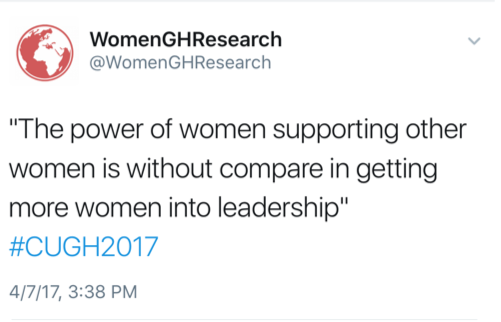



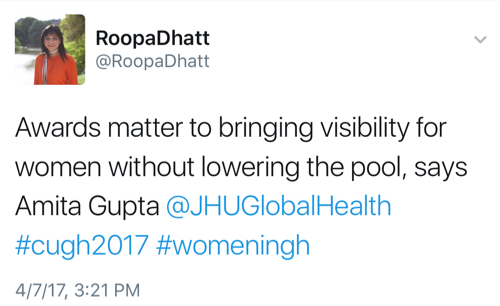

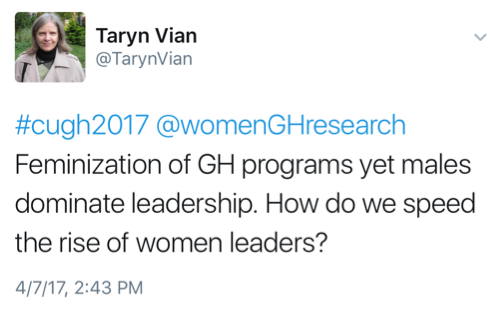




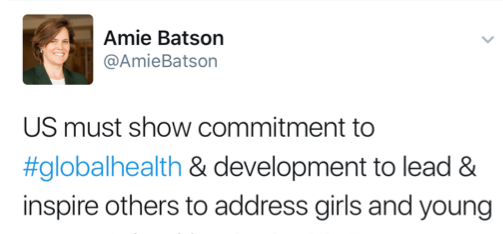

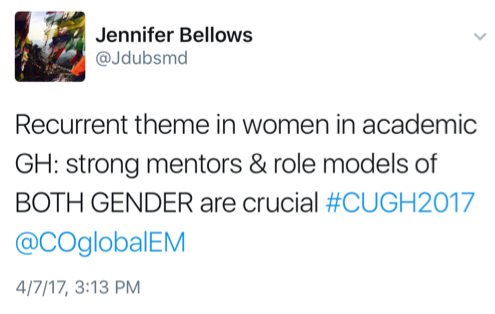

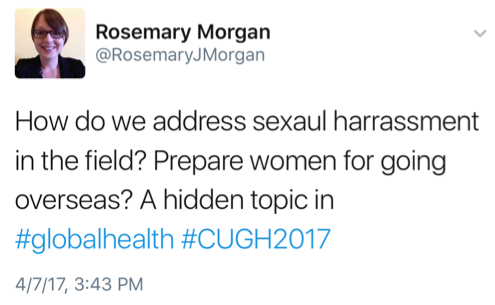

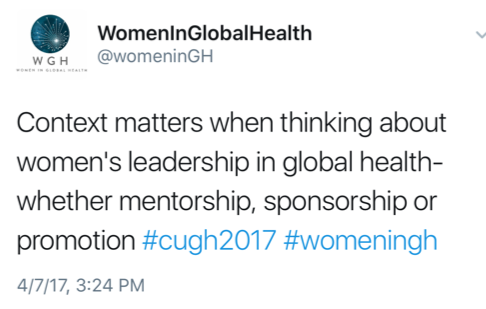

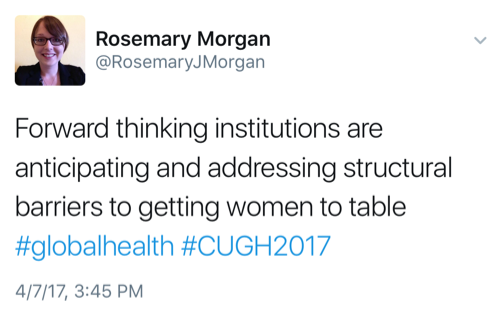







































Comments